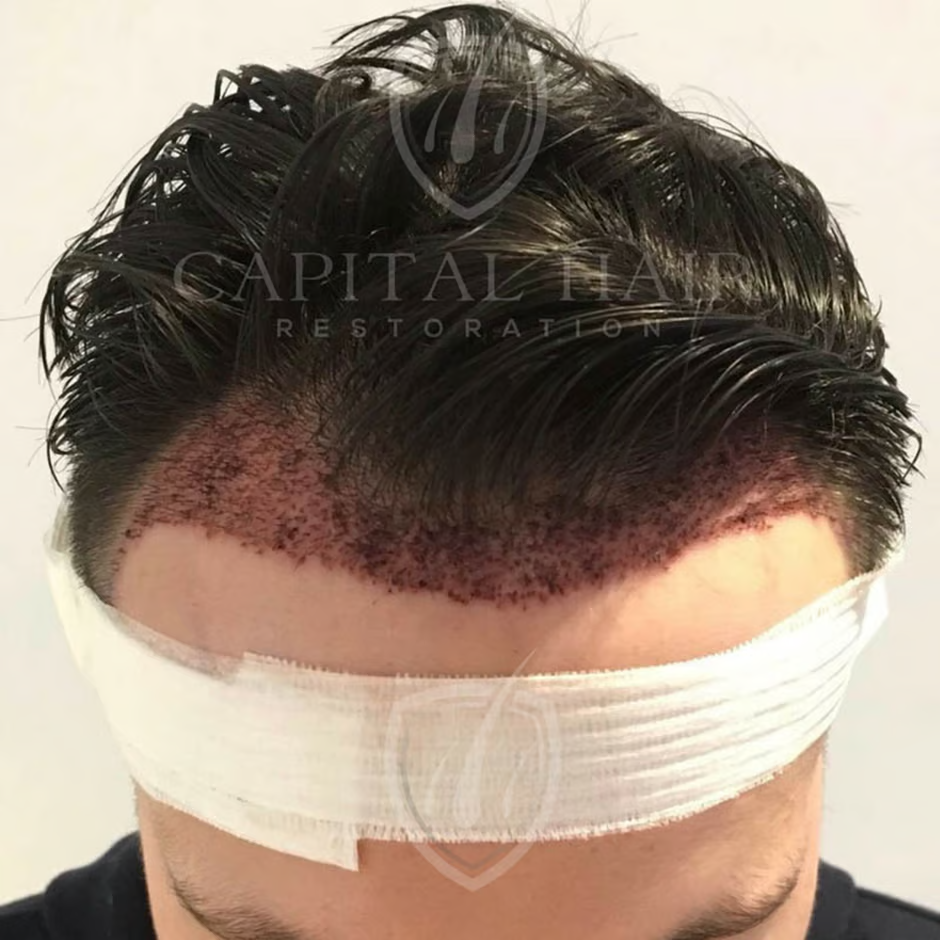
Precautions Before FUE Hair Transplantation:
Consultation with Surgeon: Schedule a comprehensive consultation with your FUE hair transplant surgeon to discuss your medical history, expectations, and concerns. The surgeon will assess your candidacy for the procedure and provide personalized recommendations based on your individual needs.
Medication Review: Inform your surgeon about any medications, supplements, or herbal remedies you are currently taking. Certain medications, such as blood thinners, may need to be adjusted or discontinued before the surgery to minimize the risk of bleeding and complications.
Lifestyle Adjustments: Adopt a healthy lifestyle in the weeks leading up to the FUE hair transplant surgery. This includes eating a balanced diet, staying hydrated, avoiding smoking, and limiting alcohol consumption. Maintaining overall health and well-being can support the body's healing process and enhance surgical outcomes.
Follow Pre-Operative Instructions: Your surgeon will provide specific pre-operative instructions to follow before the FUE hair transplant surgery. This may include guidelines for washing your hair, avoiding certain hair products, and refraining from shaving or trimming the donor area.
Precautions After FUE Hair Transplantation:
Follow Post-Operative Instructions: Adhere to the post-operative instructions provided by your surgeon diligently. This includes guidelines for scalp care, medication usage, and activity restrictions during the initial recovery period. Following these instructions can minimize the risk of complications and promote optimal healing.
Protect the Scalp: Protect the scalp from direct sunlight, wind, and dust by wearing a loose-fitting hat or scarf when outdoors. Avoid exposing the scalp to extreme temperatures or environmental pollutants that may irritate the healing skin. Be gentle when washing and handling the scalp to avoid disrupting the newly transplanted follicles.
Avoid Strenuous Activities: Refrain from engaging in strenuous activities or heavy lifting during the first few weeks after FUE hair transplantation. Vigorous exercise and physical exertion can increase blood flow to the scalp and disrupt the healing process. Opt for light activities and gentle movements to promote recovery.
Attend Follow-Up Appointments: Attend all scheduled follow-up appointments with your surgeon to monitor the progress of your recovery and address any concerns or questions you may have. These appointments are essential for ensuring the success of the procedure and optimizing long-term results.
Conclusion:
Taking precautions before and after undergoing FUE hair transplantation is essential for minimizing risks, promoting optimal healing, and achieving successful outcomes. By following the recommendations outlined in this article and adhering to the guidance provided by your surgeon, you can navigate your hair restoration journey with confidence and peace of mind. Remember that patience and proper care are key to achieving the best results from FUE hair transplantation, so prioritize your health and well-being throughout the recovery process.